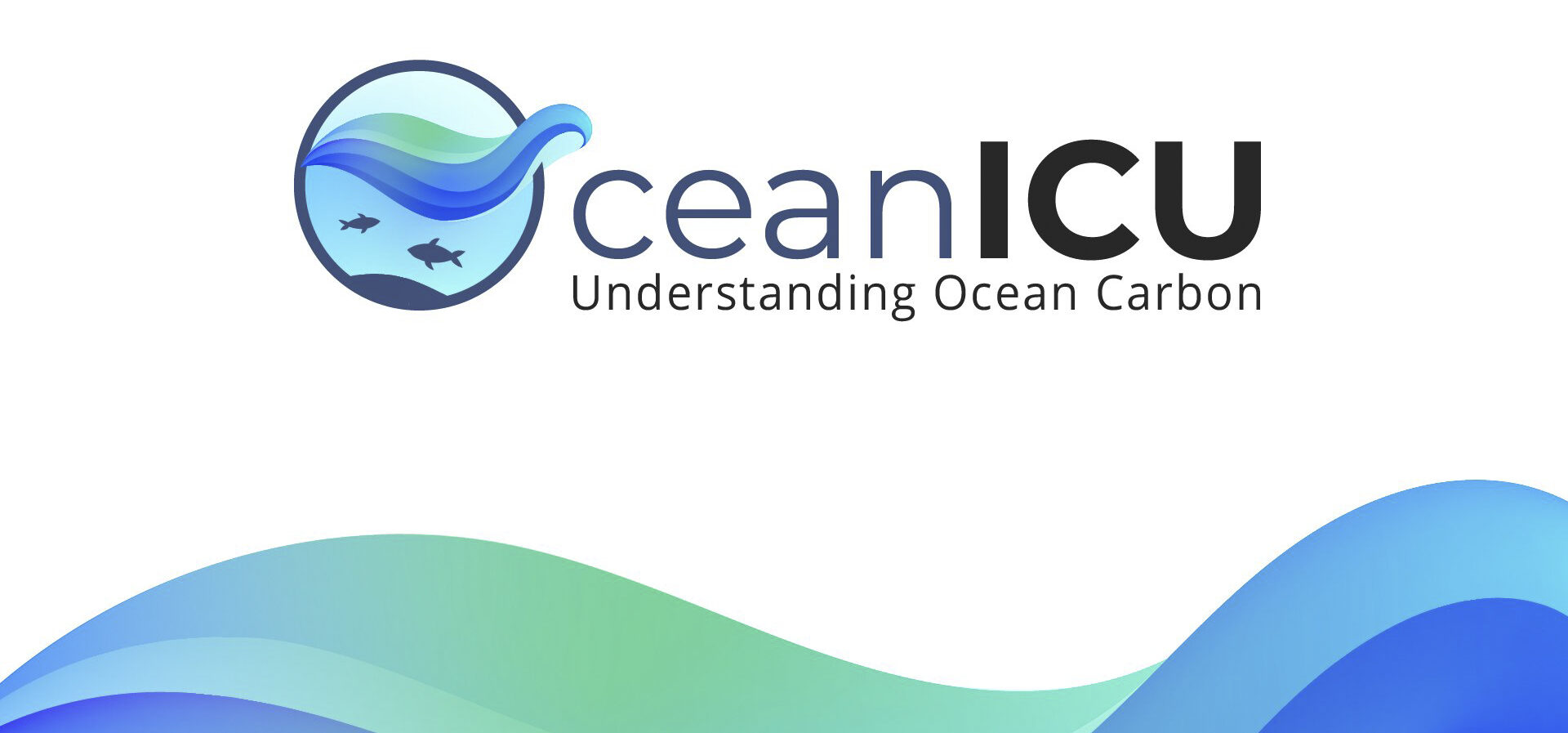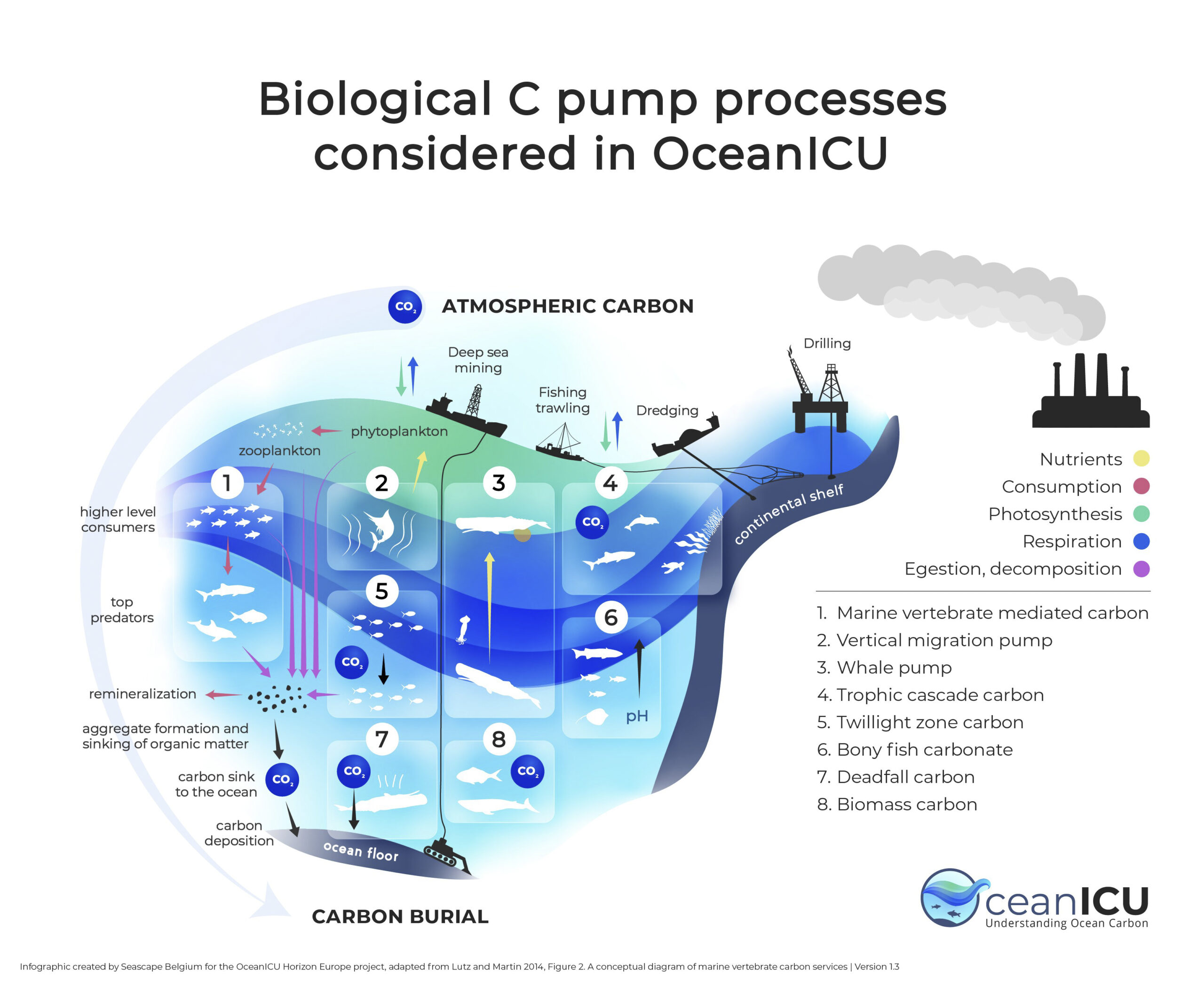
February 2023 saw the kick-off of a new European funded project called OceanICU – Improving Carbon Understanding. OceanICU will address limitations in our ability to measure and model the ocean carbon sink, with a focus on estimating the significance of the biological pump and human activities including fishing, energy and mineral extraction.
The Ocean plays a crucial role in the global C cycle, taking up approximately 25% of the CO2 we emit to the atmosphere, and thus slowing the rate of climate change. The future trajectory of this sink will affect the timing and intensity of the modifications to human processes that we need to undertake in order to stabilise atmospheric CO2 at 450ppm.
Our ability to measure and model this sink is limited (evidenced by significant discrepancies between measured and modelled carbon uptake) with the current frontier area of research being a suite of biological processes related to higher trophic level behaviour within the so-called biological carbon pump. This involvement of higher organisms suggests that human activities (e.g., fishing, but also energy and mineral extraction) may have the capacity to affect the ocean carbon sink. However, we lack the ability to quantitatively link direct human pressures and ocean carbon storage. Ocean ICU will measure these key processes and evaluate their overall significance, transferring those that are important into models that inform the IPCC process and in this way contribute to resolving the observed model data mismatch of ocean carbon sink estimates.
The project will also produce decision-support tools to provide insights for policy makers and managers on the multi-stressor effects of management levers (trawling, drilling, overfishing, deep sea mining and dredging) and aid the process of assessing risks to climate change and planning and mitigation and adaptation actions.
OceanICU Kick-off meeting in Copenhagen
With an official start date in November 2022, OceanICU was launched at a kick-off event in Copenhagen from 20 to 22 February 2023. The meeting gathered the 23 consortium participants and 7 partners, including representatives from the European Commission, EMODnet and EU4OceanObs. Coordinated by NORCE – the Norwegian Research Centre, the project reunites the efforts of public and private research institutes of 10 European Union (France, Poland, Portugal, Ireland, Germany, the Netherlands, Belgium, Sweden, Spain, Denmark) and three non-EU member states (Turkey, Norway and the UK).
The project is funded under the Horizon Europe Research and Innovation funding programme for a period of 4 years with about €13 million of funding from the European Union.

Links between OceanICU and EU4OceanObs
The EU4OceanObs project action on the G7 Future of the Seas and Oceans Initiative (FSOI) will facilitate linkages between OceanICU and international / intergovernmental partners and programmes, and promote the use of project outputs for decision support at the science-policy interface. Ocean carbon is a priority area of the G7 FSOI, which brings together international experts with the G7 delegations to review status, gaps, and priorities for ocean research and systematic observations. EU4OceanObs will promote the work of OceanICU as an EU contribution to the G7 Ocean carbon priority area. Maria Hood, head of the EU4OceanObs G7 action, will join the Advisory Board of OceanICU to strengthen these connections.
To facilitate collaborations between EU ocean carbon actions and those of international partners, the European Commission announced at the OceanICU kickoff meeting that it will host the meeting of the UNESCO-IOC International Ocean Carbon Research (IOC-R) working group from 3-5 May 2023 in Brussels. The IOC-R working group has been recognized by the G7 FSOI as a leading international group for guidance on ocean carbon research. The IOC-R working group brings together experts from the five international research and coordination programmes (the International Ocean Carbon Coordination Project (IOCCP), the Integrated Marine Biosphere Research Project (IMBeR), the Surface Ocean – Lower Atmosphere Study (SOLAS), the Climate and Ocean Variability, Predictability and Change (CLIVAR) project and the Global Carbon Project).
Useful Links
- The OceanICU project on Cordis website: ocean-icu.eu
- Integrated ocean carbon research: a summary of ocean carbon research, and vision of coordinated ocean carbon research and observations for the next decade
- EU Integrated Carbon Observing System (ICOS) – Ocean Thematic Centre
- G7 FSOI support to develop a global Surface Ocean CO2 Monitoring Strategy




